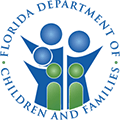People with borderline personality disorder (BPD) often have difficulty in relationships. They may struggle to form stable connections with other people. One moment they may be intensely involved with others, and another moment they may feel extremely angry towards the same people and devalue their relationship.
Understanding Borderline Personality Disorder
Learn about borderline personality disorder
This back-and-forth between love and loathing is called “splitting.” BPD sufferers are frequently anxious about being abandoned by others and may behave erratically, dramatically, or unpredictably if they feel they are in danger of losing attachments with others. When faced with perceived abandonment, people with BPD may engage in extreme behaviors, including self-harm and suicidal gestures, to prevent others from leaving them. They may have a distorted, negative self-perception, and they often struggle to control their emotions, engaging in reckless or impulsive behaviors. BPD sufferers often have a history of trauma or abuse. If left untreated, BPD can have devastating effects on many aspects of a person’s life. Thankfully, help is available for those who seek it to manage their borderline personality disorder.
Statistics
Borderline Personality Disorder Statistics
According to the National Institute of Mental Health, slightly less than two percent of people in the U.S. are diagnosed with BPD. In a given year, only slightly more than forty percent of people diagnosed with BPD are receiving treatment. Although seventy-five percent of those diagnosed with BPD are women, research suggests that BPD is often misdiagnosed as depression or posttraumatic stress disorder in men.
Causes & Risks
Causes and Risk Factors for Borderline Personality Disorder
Borderline personality disorder, like many other mental health disorders, is likely caused by an interaction of genetic and environmental factors. These factors are briefly described in the following:
Genetic: While there is no one gene that causes BPD, twin studies suggest that certain people seem to be more genetically susceptible to developing the disorder than others. A person’s risk of developing BPD increases fivefold when that person has a close relative with BPD. In addition, people with BPD exhibit certain neurological differences from people without the disorder. Specifically, areas of the brain involved in planning, judgment, decision-making, and emotional regulation may not be communicating effectively. One study found that people with BPD have stronger emotional reactions than people without BPD when showed negative words.
Environmental: One of the primary environmental risk factors for BPD is a history of trauma, including sexual abuse, neglect, or separation from parents during childhood. Certain social or cultural factors, such as living in a community where unstable family relationships are common, may also increase someone’s risk of developing BPD.
Risk Factors:
- History of trauma, such as childhood sexual abuse or neglect
- Having a close relative with BPD
- Unstable home life
- Chronic exposure to chaos or instability
Signs & Symptoms
Signs and Symptoms of Borderline Personality Disorder
People with BPD can often function well in informal social situations. They are often charismatic and can be the “life of the party.” However, once relationships become more intimate and the emotional stakes grow higher, people with BPD can begin to show more symptoms. Symptoms of borderline personality disorder can include:
Behavioral symptoms:
- Impulsivity and recklessness, such as impulsive, unsafe sex, reckless driving, substance abuse, spending sprees, and binge-eating
- Seductive or flirtatious behavior
- Frantic efforts to avoid real or imagined abandonment, including attention-seeking behaviors
Physical symptoms:
- Injury from self-harming behavior, such as cutting
- Infection or disease resulting from impulsive behaviors, such as an STI contracted during a risky sexual encounter
- Poor health from co-occurring eating disorders
Cognitive symptoms:
- Poor memory
- Feeling “in a fog”
- Poor judgment and decision-making
Psychosocial symptoms:
- Extreme reactions to actual or perceived abandonment, including rage, frantic or attention-seeking behavior, and suicidal gestures
- Strong, rapid fluctuations in emotion and episodes of rage
- Flipping between idealization and devaluing in relationships
- Periods of depersonalization, or feeling disconnected from one’s body
- Periods of derealization, or feeling as though the outside world is not real
- Stress-related paranoid thoughts (e.g., “My boyfriend has been staying late at work; he must be cheating on me!”)
- Feeling empty or bored
- Distorted, unstable, negative self-image which can feed into paranoid thoughts (e.g., “My boyfriend must be cheating on me because I’m worthless.”)
Effects
Effects of Borderline Personality Disorder
Borderline personality disorder has myriad negative effects on those who suffer from it. These depend on each person’s experience of the disorder, but can be far-reaching and include the following:
- Strained relationships
- Having little to no social network
- Poor self-esteem
- Problems maintaining stable employment
- Health problems, such as those resulting from eating disorders or disease from contracting an STI during a risky sexual encounter
- Death from successful suicide attempt
Co-Occurring Disorders
BPD & Co-Occurring Disorders
Because stress and mental illness are risk factors for developing a substance use disorder, people who abuse substances often struggle with a number of co-occurring disorders, including:
- Depressive disorders
- Bipolar disorder
- Anxiety disorders
- Obsessive-compulsive disorder
- Eating disorders
- Posttraumatic stress disorder
- Attention-deficit/hyperactivity disorder
- Learning disorders
- Personality disorders













